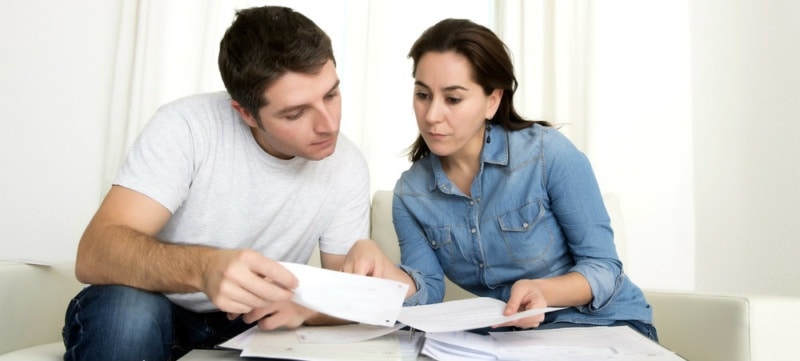Create a household budget through tracking expenses can do wonders for your finances and it doesn’t have to be difficult.
When setting up your household budget, you have to think about big-ticket items, such as how much should you spend on your rent or mortgage payments, how much should you budget for utilities in a new home and what will it cost you to buy homeowner’s or renter’s insurance to fully protect yourself in case of catastrophe.
But more trivial expenses, like how much you’re going to spend on the average Saturday night out and what kinds of cable bills you’ll be paying are important pieces of a household budget as well. And with the cost of food and fuel rising, you might need to pare back on your household entertainment expenses if your heating bill is skyrocketing.
Getting a handle on your household expenses may be time-consuming to calculate, but creating this kind of household budget will make your financial life easier down the road.
Here’s how to create your own household budget.
Start with your basic household expenses
Look at your monthly housing costs (rent or mortgage), insurance premium (a homeowner’s or renter’s policy), utilities (phone, electric, gas, cable, Internet service, wireless, etc.), food, entertainment, clothing expenses, home furnishings (painting, carpeting, furniture, etc.), transportation, savings, donations, children’s expenses (if you have any), medical, household cleaning and maintenance expenses, school supplies or daycare expenses, if you have kids, etc. Gather the relevant paperwork, statements and receipts so you have actual numbers to review.
If you own your own home, or will be buying a home, be sure to include ongoing costs for maintenance and upkeep, real estate taxes, and homeowner association dues or monthly maintenance costs.
Track your household expenses
A big clue as to what you will spend in the future can be found in what you’re spending right now. If you don’t already track your household expenses, you should buy a small, wire-bound notebook and start writing down every cent you spend. A neat trick I still employ is to wrap a sheet of paper around the dollar bills in my wallet (a piece of sticky notepaper works also) and then any time I withdraw dollars from my wallet, I write down how much I’ve spent in cash.
You probably pay a lot of your household expenses with your checkbook, so run through the checks you’ve written or sent online, and jot them down in your wire-bound notebook. If you have a pocket or purse full of receipts, be sure to add those in as well. Go online to check your credit card accounts, and write down all purchases you’ve made in the past few months.
If you track your expenses with money management software you’ll be able to quickly get your hands on these numbers. If not, consider using online services to track your household expenses. You can download your credit card charges and bank information into your online accounts, which should update automatically. You can then check this information from anywhere as long as you have an Internet connection.
Once you know what you’re currently paying, you should analyze whether you’re living above, below or at your means based on your household income. This will tell you what needs to change in your spending, or where you can prioritize excess funds.
This information is especially helpful when you’re considering moving into a new home or apartment. At a glance, you can see whether your new mortgage or rent payments will be higher than what you’re paying now, even when you factor in taxes and insurance. If these higher payments will put an undue strain on your household budget, the home may not be right for you.
Don’t underestimate one-time costs in your budget. Holiday spending can affect your budget significantly, as can costs associated with changes like moving into a new home. You may have to hire movers or rent your own moving truck. You’ll need to clean your new home and perhaps buy draperies, appliances, or even light fixtures. While one-time expenses like these shouldn’t sink your ongoing household budget, they can drain your cash reserves. This is where planning ahead – and having an emergency fund – come in handy
Be conservative in setting up a household budget
When it comes to setting up a household budget that works, you’ve got to be realistic and conservative. You should be realistic on what things actually cost. If you don’t know how much your property taxes will be this year, for example, take the time to find out. For numbers that can’t be known, you should estimate expenses conservatively. So, instead of guessing that your energy bill will be $200 per month, set your budget number at $300 or even $400 per month. The worst thing that will happen is you’ll wind up with some extra cash at the end of the month.
As you continue to track your spending, you’ll see how your expenses rise and fall with the seasons and you’ll get a real sense of how much you’re spending to live the way you do. If you decide you need to tighten your belt, you’ll have months or years worth of household expenses to look back on and help you make the decision where to cut.







Leave A Comment